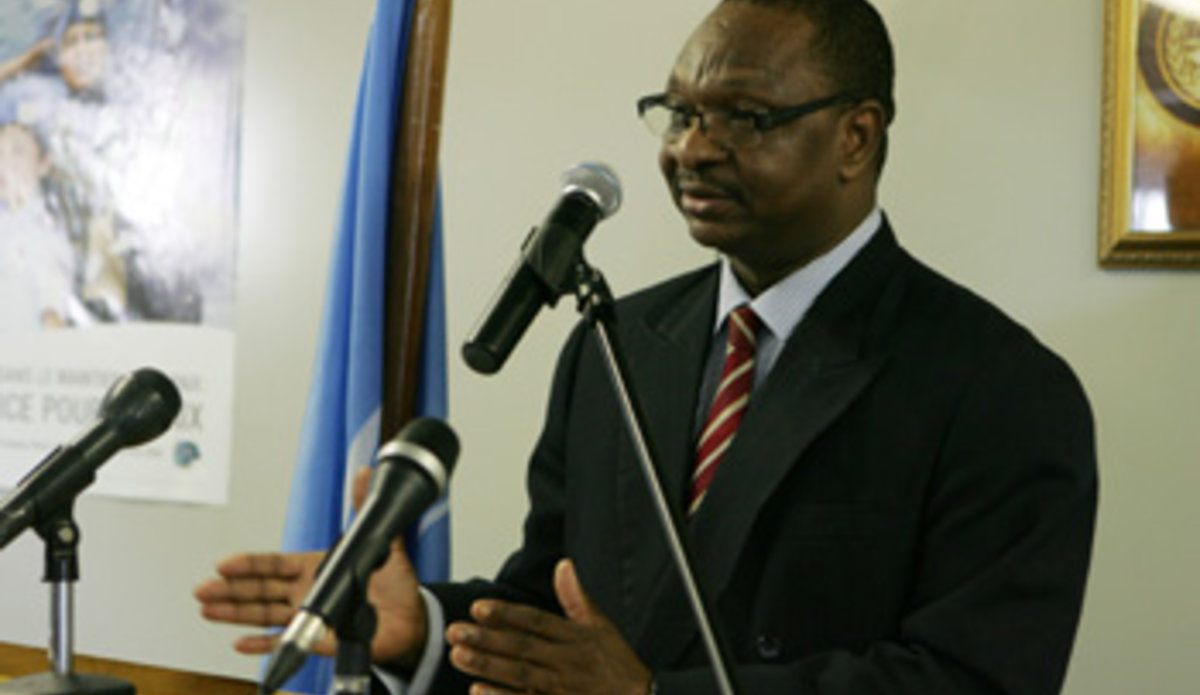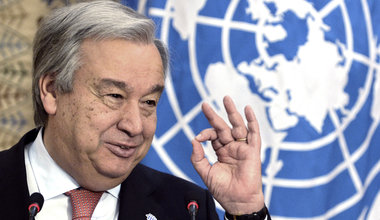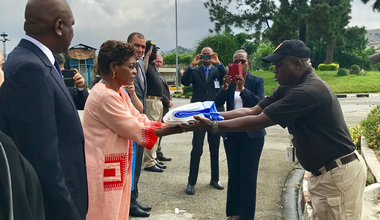SUMMARY OF UNOCI’S WEEKLY PRESS CONFERENCE Abidjan, 30 July 2009

The operation to process data obtained during the identification and voter registration operation has been facing difficulties including strike action in some areas of the country, said the United Nations Operation in Côte d'Ivoire (UNOCI) in Abidjan on Thursday. The Mission's Spokesman, Hamadoun Touré, said it was nevertheless encouraged by the fact that the operation had started and data was being processed in some areas.
Speaking during the Mission's weekly press conference, Mr. Touré said that UNOCI would like to see the Independent Electoral Commission (IEC) and the national authorities overcome the current difficulties. In this regard, UNOCI urged them to "find a quick solution to the situation in order to safeguard the integrity of the electoral timetable and preserve the hope which stemmed from its publication with the different stages that should lead to presidential election on 29 November 2009". Out of the 68 coordination centres provided in the interior of the country, 17 were presently working, he added.
UNOCI, said its Spokesman, reiterates its multifaceted support to the efforts that are presently being made and urges the Ivorian parties to persevere in carrying out programmes that would lead to the publication of the provisional electoral list on 22 July 2009, as scheduled in the electoral timetable. According to him, these efforts will allow all concerned to "overcome all the challenges facing the electoral process and thus lead to open, free, fair and transparent elections..."
UNOCI's request, explained Mr. Touré, was a response to concerns about avoiding possible disruptions with regard to the execution of the timetable. He said that it was therefore important to circumscribe the difficulties now, in order to prevent them from extending to other areas. Everyone has to play his role, because according to him, "the publication of the timetable raised a lot of hope among Ivorians and I think we all have to do all we can to satisfy these expectations on 29 November 2009".
With regard to the social difficulties the data processing operation is facing, UNOCI's Spokesman said, that these were public issues which had resulted in the closure of some coordination centres. However, Mr. Touré added, these were difficulties that could easily be resolved and above all they should be resolved quickly in order to continue with the matter in hand.
Responding to a question on the humanitarian crisis, he said that this had not been forgotten. Contrary to appearances, explained Mr. Touré, the humanitarian issue was still very important to the international community, especially for humanitarian coordination, which is headed by UNDP and includes agencies such as OCHA, HCR and UNICEF. "Very often there are outreach missions in order to see the extent of the humanitarian problem".
Concerning the UN mission on the cantonment of FAFN elements, Mr. Touré explained that the aim of the logistics visit was to assess the use of camps which had been rehabilitated and built by UNOCI for the cantonment of ex-combatants. It was about seeing if there were other needs and to see how UNOCI could respond to those needs as part of the DDR process. "We have to regroup the ex-combatants, get volunteers for the New Army (VAN) in order to see how to prepare them for profiling and possible reintegration, " added Mr. Touré.
The Spokesman said that UNOCI was doing everything to ensure that the date of 29 November is respected. UNOCI estimated that the present political climate was encouraging, especially after the official publication of the electoral timetable with its different phases. "We have to see that this climate is consolidated and above all that social difficulties do not turn into more obstacles which will simply add to the technical difficulties which are being resolved progressively", he concluded.
 UN
UN United Nations Peacekeeping
United Nations Peacekeeping







